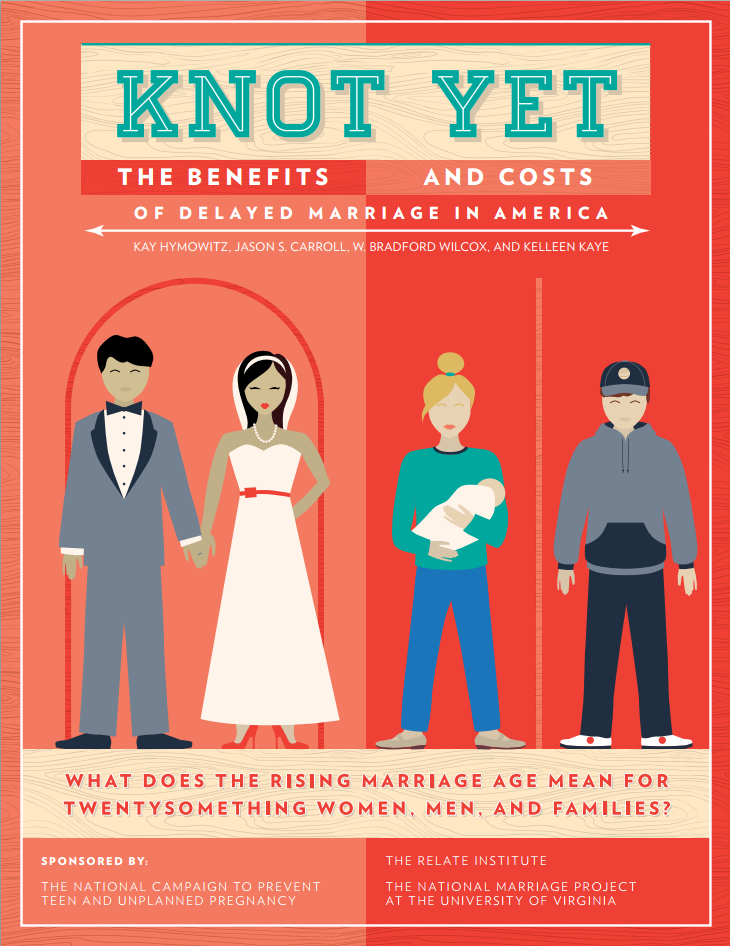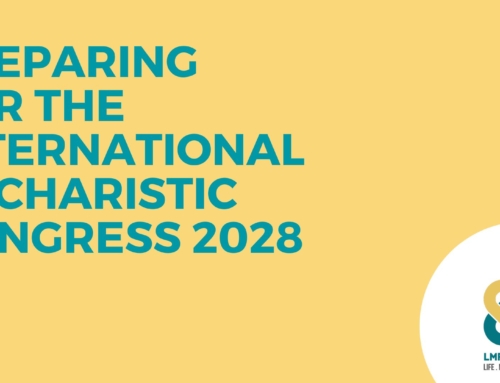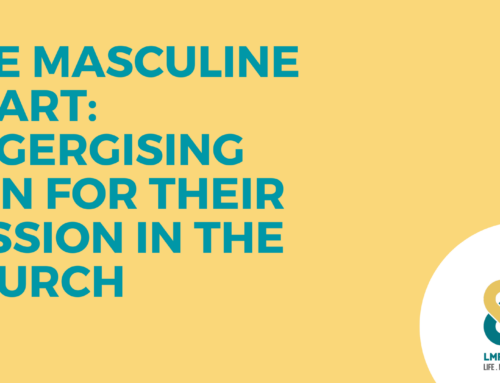
Following the release of a report in the USA on the phenomenon of delaying marriage, there has been a number of commentaries on the findings. Below is one from Zenit.
You can also read the original PDF report: here or visit the reports website for an interactive encounter with the data: here
Or read some of our SmartLoving blog posts of the same name: here
Or read an opinion piece in the NYT by Ross Douthat: here
Delaying Marriage
Report on Family and Social Consequences
Rome, (Zenit.org)Full article: here
One of the major social changes in recent times is the postponement of marriage. A recent report examined the implications of this development.
“Knot Yet: The Benefits and Costs of Delayed Marriage in America” was published by the National Campaign to Prevent Teen and Unplanned Pregnancy, the National Marriage Project at the University of Virginia, and the RELATE Institute.
In the United States the average age at marriage is 26.5 years for women, and 28.7 for men. Yet while the average age at which women give birth to their first child has risen it has lagged behind the extent of delaying marriage.
The median age of first birth is 25.7, below that of a first marriage. As a result, by 25 years of age 44% of women have given birth, but only 38% have married. Consequently, 48% of all first births are now outside of marriage.
“Thus, the nation is at a tipping point, on the verge of moving into a new demographic reality where the majority of first births in the United States precede marriage,” the report stated.
Cornerstone to capstone
“Marriage has shifted from being the cornerstone to the capstone of adult life,” the report explained. As such, it is not a foundation upon which young adults base their lives, but something which happens only after they have achieved independence and financial security.
The problem is, the report pointed out, that for many Middle Americans this financial security is increasingly difficult to achieve.
“The biggest downside to delayed marriage in America is that many young adults are now putting the baby carriage before marriage,” said report co-author and National Marriage Project director Bradford Wilcox, an associate professor of sociology at the University of Virginia.
“What they often don’t realize is that children born outside of marriage are significantly more likely to be exposed to a revolving cast of caretakers and the social, emotional and financial fallout associated with family instability and single parenthood,” he commented.
“Researchers now view family instability as one of the greatest risks to children’s well-being,” they noted.
Child abuse, behavioral problems, drug use, and a whole list of negative outcomes are associated with children growing up without both their natural parents.
The parents also suffer, the report added. Compared to those who are married, single or cohabitating parents in their 20s are more likely to suffer from depression or addiction problems.
Not just personal
While some might think that the decision to marry is a purely personal one, the authors of the report observed that when these personal decisions are multiplied by many millions of people the consequences affect the whole of society.
There is no easy way to resolve the problems affecting marriage and family life, the report admitted in its conclusions. Whether it is policy makers, civil or religious leaders, educators and those in the media, they all need to work together to renew marriage and parenthood.
“We believe,” the report stated, “both for the sake of today’s 20-somethings and their children, that we can and should bring marriage and childbearing back into sync.”
The report comes at a time when arguments were presented this week before the Supreme Court regarding same-sex “marriage,” which if introduced will only further debilitate that link between marriage and children.




